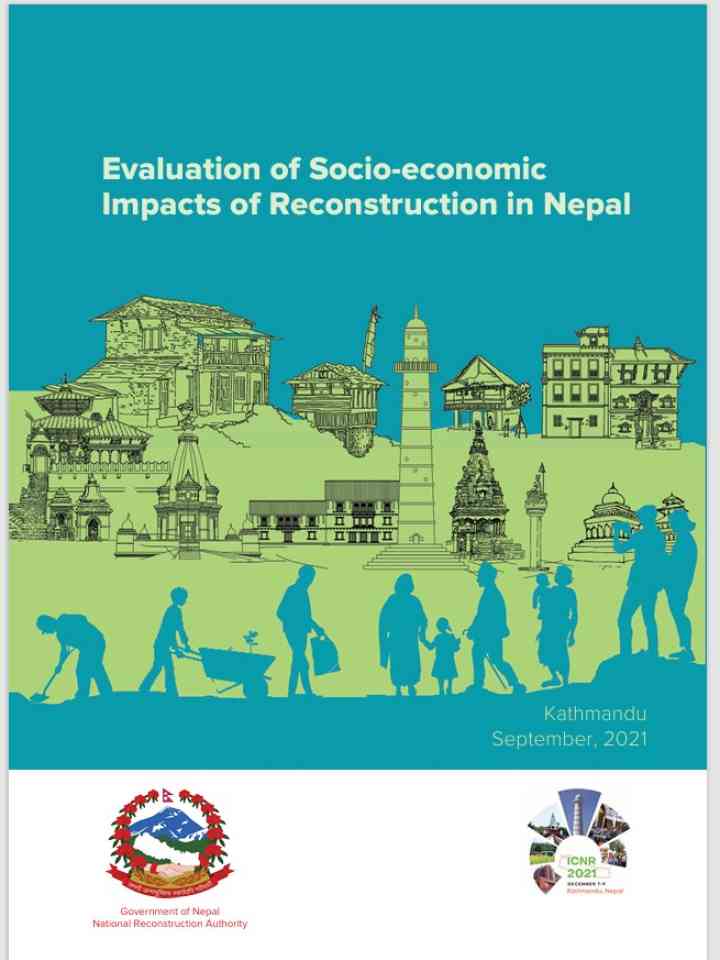Evaluation of Socio-economic Impacts of Reconstruction in Nepal
Nepal made a substantial investment of Rs. 867,890 million in the post-earthquake reconstruction within the six years after the mega earthquake of a magnitude of 7.6 on the richter scale hit the country on 15th April 2015. The National Reconstruction Authority (NRA) led and delivered the challenging mandate of reconstruction in the face of adversity and limited resources. Massive reconstruction projects in the private housing, school, health, public buildings, heritage and other infrastructure sectors were launched. Livelihood promotion projects were also implemented in the earthquake-affected districts. These investments and efforts have begun to generate social and economic impacts in the affected areas and beyond, which in some cases are transformative in nature. Therefore, NRA, towards its closure, decided to carry out an independent study on the socio-economic impact of reconstruction activities and explore intuitional options that could maintain and build on the gains of reconstruction and ensure a resilient Nepal.
The objective of this study is to evaluate the socio-economic impact of post-earthquake reconstruction and recommend institutional frameworks to sustain and build on the gains of reconstruction after the closure of the NRA.
The specific aims of this study are to - a) evaluate the physical and financial performance of NRA, b) assess socio-economic impacts of the reconstruction activities, c) estimate the contribution of reconstruction activities to Gross Domestic Product (GDP), d) record the lessons learned that will help government better address post disaster recovery and reconstruction in the future, and e) suggest possibilities for optimum closure of NRA to sustain and build on the gains of reconstruction.
Explore further
